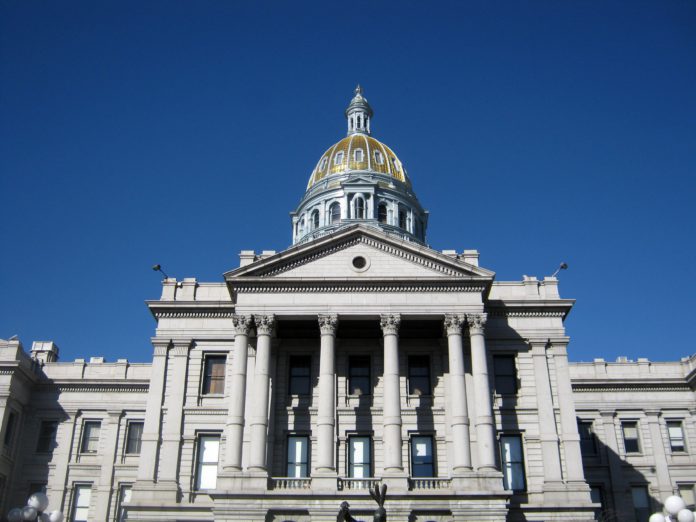

Colorado’s legislators have set the stage for fixing an oversight from the last session that cost special districts millions of dollars in tax revenue from marijuana sales. The lawmakers hope a pair of bills introduced in the first week of the new session will accomplish what a special session in October did not.
The accidental funding elimination began with the passage of Senate Bill 17-267, a bipartisan bill that exempted hospital-provider fees from TABOR requirements. The bill warded off deep funding cuts to rural hospitals and at the same time provided about $2 million in transportation funding by raising the state marijuana tax from 10 percent to the voter-approved 15 percent maximum. At the same time, the bill created an exemption from the regular 2.9 percent general state sales tax for retail marijuana sales.
But the exemption inadvertently cut millions in funding from special districts, such as RTD, the scientific and Cultural Facilities District and Health Services District, that had already gotten voter approval to tax marijuana sales.
According to an October estimation, SB 17-267 could cut up to $8.6 million in the 2018-2019 fiscal year.
A three-day special session convened in October to fix the mistake, but the resulting bill did not pass.
Legislators needed to assess whether fixing the error would violate TABOR’s stipulation that a tax policy change resulting in an increase of revenue requires voter approval.
House Majority Leader KC Becker, the primary House sponsor of this session’s Senate Bill 88, said she believes case law makes it clear that removing a tax credit without exceeding TABOR’s cap doesn’t require voter approval.
“That analysis would apply here, so I don’t think there’s actually a constitutional issue here,” Becker said.
The two new bills take different approaches to accomplishing the same goal. SB 88, which has dozens of sponsors from both chambers, fixes the funding elimination by shifting the exemption cities had prior to SB 17-267’s passage to the special districts themselves.
The bill clarifies that retail marijuana sales remain subject to the sales taxes levied by RTD, SCFD, HSD and other limited-purpose government bodies that the sales were subject to before July 1, 2017. The bill also stipulates that such entities that had not imposed taxes on marijuana sales before last July 1 cannot do so now.
House Bill 1062, of which Rep. Steve Lebsock is the sole sponsor, repeals the general state sales tax exemption for marijuana sales that came with SB17-267.
Lebsock’s bill also decreases the retail marijuana sales tax from 15 percent to 12.1 percent.
With the repeal of the state exemption, sales of retail marijuana are automatically subjected to the sales tax levied by a limited-purpose governmental body that has the same sales tax authority as the state.
Right now, municipalities and counties can create an exemption for sales of retail marijuana from the state general sales tax. Lebsock’s bill also repeals this contingent authority.
According to Lebsock, his goal with HB 1062 is to respect taxpayers’ rights. He explained the special districts have already gotten voter approval to levy taxes on marijuana sales, and while the bill repeals a portion of SB 17-267 that exempted marijuana from the base state sales tax, it does not ask for a tax increase.
“We’ve respected the spirit of TABOR with [HB] 1062,” Lebsock said, later continuing that “the special districts will receive the revenue that they should be receiving if House Bill 1062 passes. … It fixes the problem respectfully.”
Becker said she doubts both HB 1062 and SB 88 will pass. Although they have the same goal, she said they might conflict, should they both pass, which would require more analysis from the state Office of Legislative Legal Services. She explained she believes the key difference between the two bills is SB 88’s passing of the torch to special districts to reinstate previous taxes on marijuana sales, while HB 1062 moves to totally undo the change made by SB 17-267 that affected special district funding.
Lebsock declined to comment on SB 88, saying he has not yet read the bill. Sen. Bob Gardner, SB 88’s primary Senate sponsor, did not return a request for comment.
Lebsock and Becker said October’s special session also failed because Republicans did not feel Gov. John Hickenlooper consulted them enough before the session.
“During my five years down here at the legislature, I’ve found how important it is to actually count votes before you get to the floor,” he said. “What the governor failed to do was actually have him and his staff call legislators and count votes.”
He added he could understand the Republicans’ frustrations.
“I’m just glad we finally have bipartisan support to fix the issue,” Becker said. “We made a mistake; we need to fix it.”
— Julia Cardi

